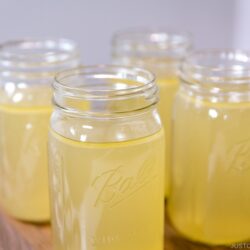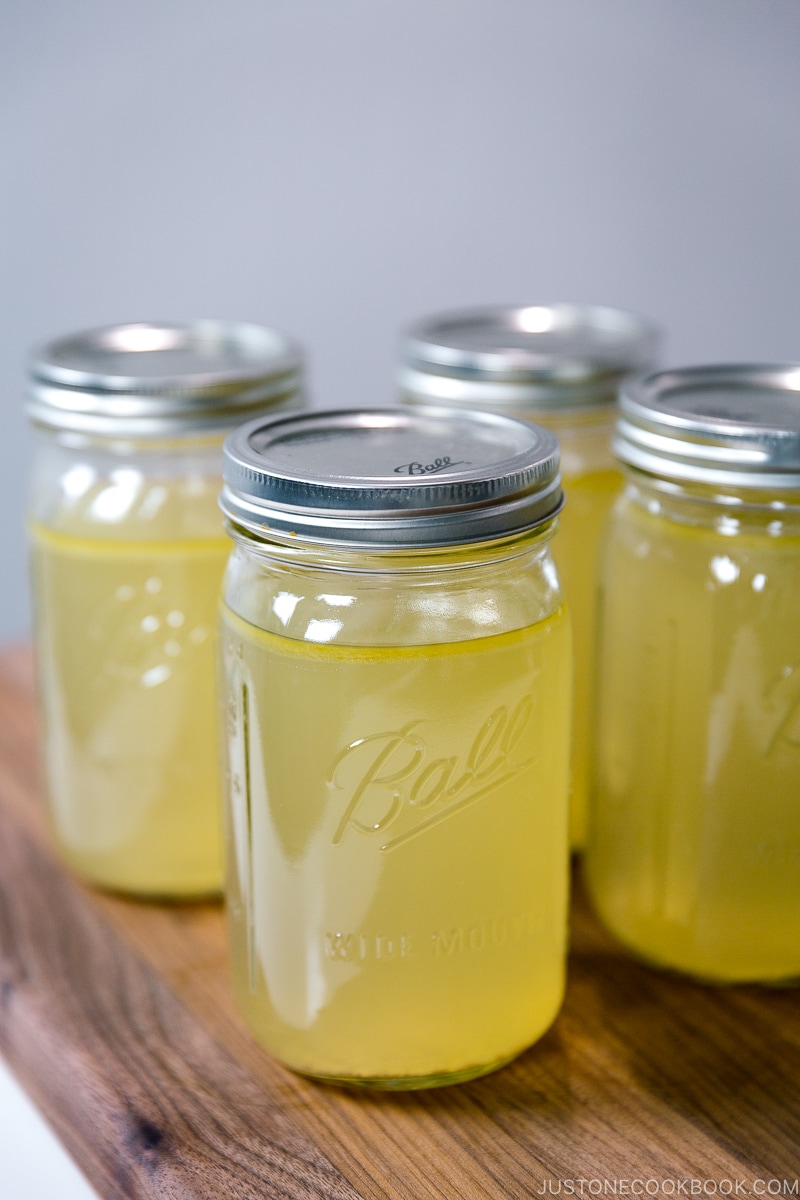
In Asian cooking, we use chicken stock to make soups, noodle soups, hot pots, sauces, and many other dishes. It’s important to note the flavor profile of Asian chicken stock is very different from western one and they shouldn’t be used as a substitute.
Asian Chicken Stock vs. Western Chicken Stock
How is the chicken stock used in Asian cooking different from western chicken stock? While western chicken stock includes celery, carrot, parsley, and other herbs, Asian chicken stock is rather simple. We only use chicken bones, ginger, green onion, and garlic (optional).
Western chicken broth has stronger flavor components with all the additional vegetables, and it tastes really delicious for soups and stews. However, the flavor profile doesn’t work for wonton soup, ramen, hot pot, and so on.
Store Bought or Homemade Chicken Stock
We don’t always have homemade chicken stock ready for use in the refrigerator or freezer, and sometimes there is no time to make chicken stock from scratch.
On those occasions, I use a can of Asian chicken stock. You can find these at many Asian grocery stores.
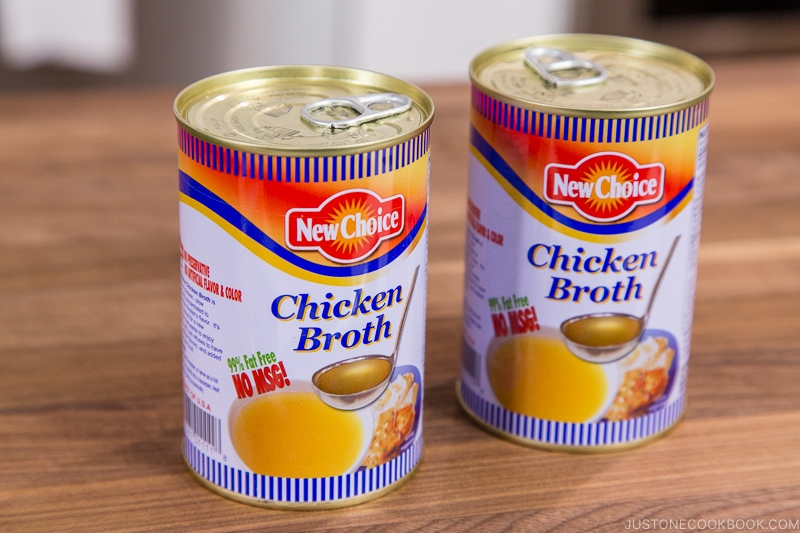
The store-bought chicken stock can be too salty, so make sure to dilute with water in a ratio of 2 parts broth to 1 part water (4 cups broth: 2 cups water) as a good starting point. You can always adjust the flavor to your liking by tasting the broth.
Homemade Chicken Stock
There are probably several (if not many) ways to make chicken broth, as each family has their own version. This is how I make my chicken stock.
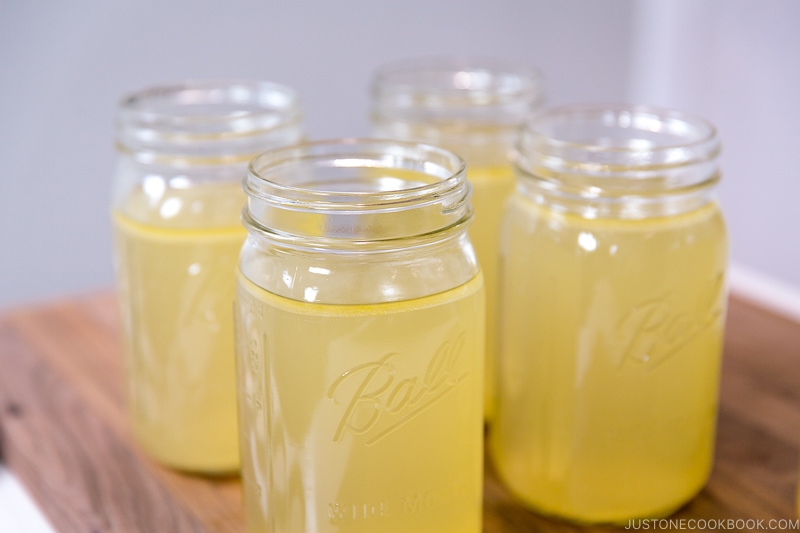
Fun Fact: It’s actually not common to make chicken stock from scratch in Japan because it’s not easy to find chicken bones or whole chicken at local Japanese grocery stores. Therefore the Japanese use the Chuka Dashi Powder (中華だし) to make Asian (especially Chinese) cooking.
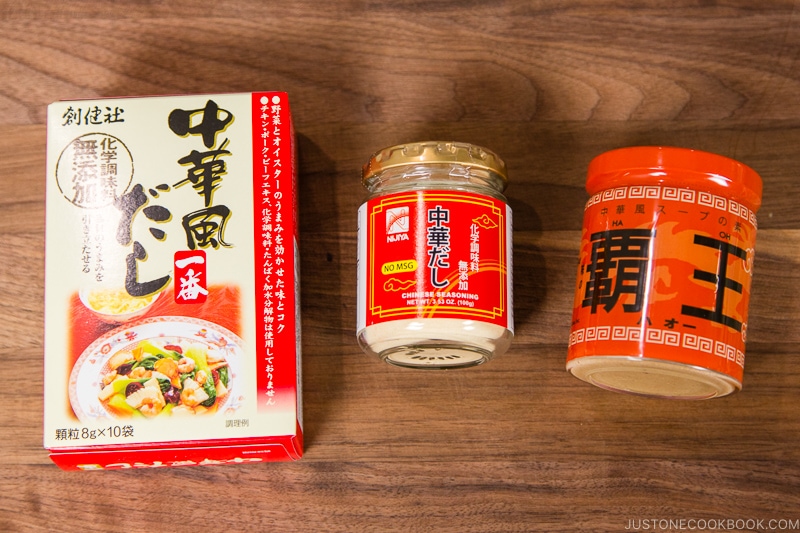
If you want to learn more about Chuka Dashi, please read this post.
Homemade Chicken Stock
Ingredients
- 4 lb chicken backs and necks (8 pieces)
- water (for prepping the chicken bones)
- 2 inches ginger
- 3 green onions/scallions
- 1 clove garlic
- 4½ QT water (17 cups)
Instructions
- Gather all the ingredients. If you‘re using frozen chicken, make sure that it‘s completely defrosted.

- Rinse 4 lb chicken backs and necks quickly and soak in cold water for 30 minutes. Replace the water several times. This helps to remove blood.
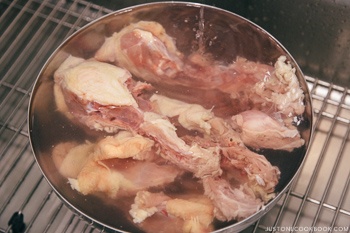
- Slice 2 inches ginger (keep the skin on), cut 3 green onions/scallions in half lengthwise, and smash 1 clove garlic. Tip: As you can see in the images, this time I used 2 Tokyo negi (Japanese long green onion) and 2 green onions. I think the green part was too much. While the stock tastes fine, it lacks a golden color. I‘d recommend sticking with the recipe calling for 3 green onions.

- In a stock pot, bring water to boil. Add the chicken and cook for just 20 seconds. Immediately drain.
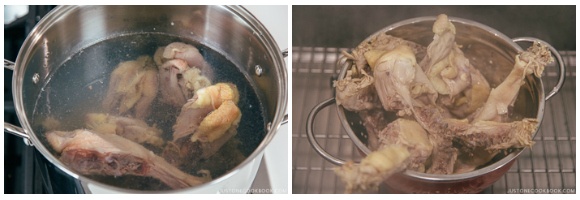
- Under cold running water, clean the chicken bones very well. Use your thumbs to go in and remove any blood or offal that might be attached.

- Chop the bones into 2-inch (5-cm) pieces. This helps the flavors come out better from bones.

- Place the clean chicken and 4½ QT water (4 L, 17 cups) in a stockpot. Bring to boil over high heat. Prepare a fine mesh skimmer and water in a 2-cup measuring cup for cleaning the skimmer (this a helpful trick).
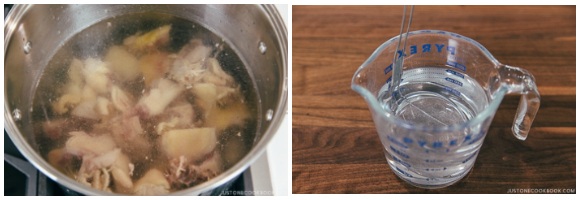
- Once boiling, immediately reduce heat to bring the stock to barely a simmer. If you boil on high heat, the stock will be cloudy. Next 15 minutes or so, skim the scum and foam on the surface with a fine mesh skimmer. It‘s tedious work but it helps make better stock.
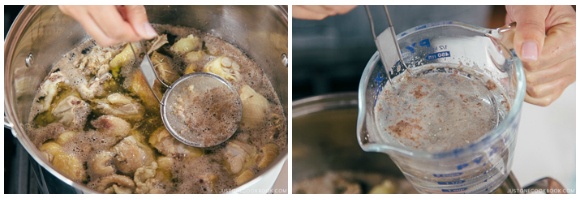
- Once the stock is clean and there‘s nothing left to skim, you can now add ginger, green onion, and garlic.
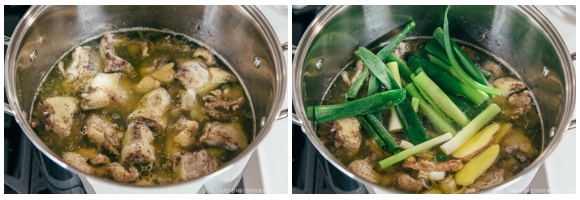
- Continue to cook for 3–6 hours (or you can pressure cook for 40–45 minutes). This time, I was running out of time, so I cooked for 2½ hours but it still tasted amazing.
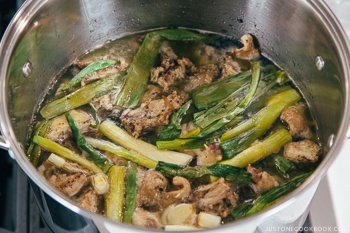
- Pick up the bones and other solids with a skimmer or slotted spoon. Then, pour the chicken stock into a fine-mesh sieve over a large bowl.
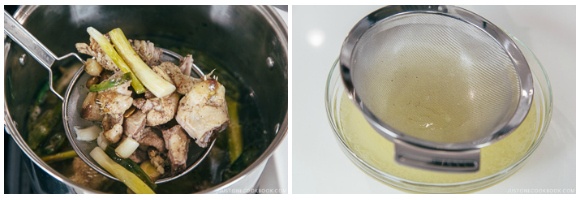
- The chicken stock is ready to use. Season with kosher salt as you like. For later use, divide the stock into mason jars and allow to cool uncovered. Keep the oil on top and once the oil is solidified, you can decide to use it for cooking or discard it.
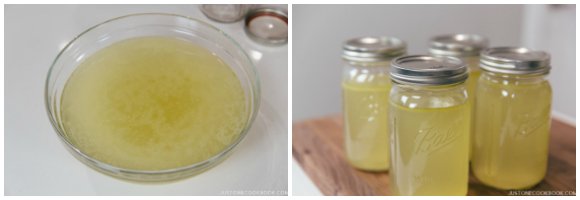
To Store
- The stock will last up to a week in the refrigerator or in the freezer for several months. Just be sure to leave enough headspace (2 inches, 5 cm) for the stock to expand.
Nutrition
Did you make this recipe?
Tag @justonecookbook on Instagram so we can see your delicious creation!


